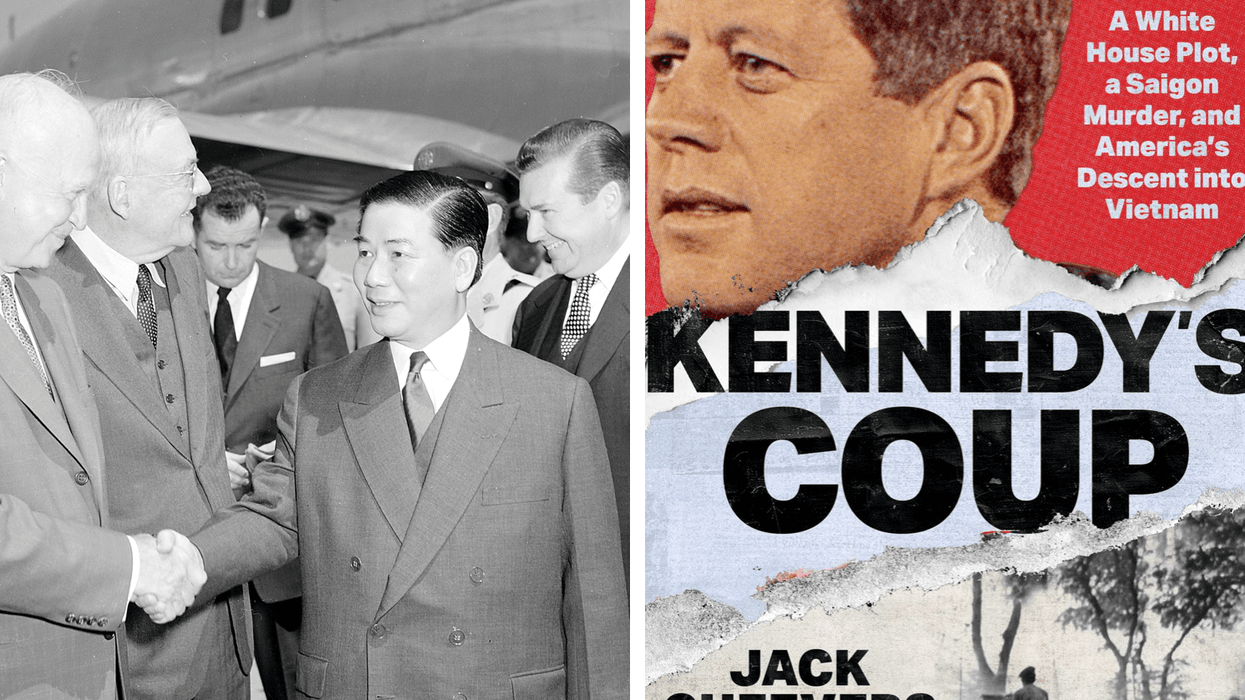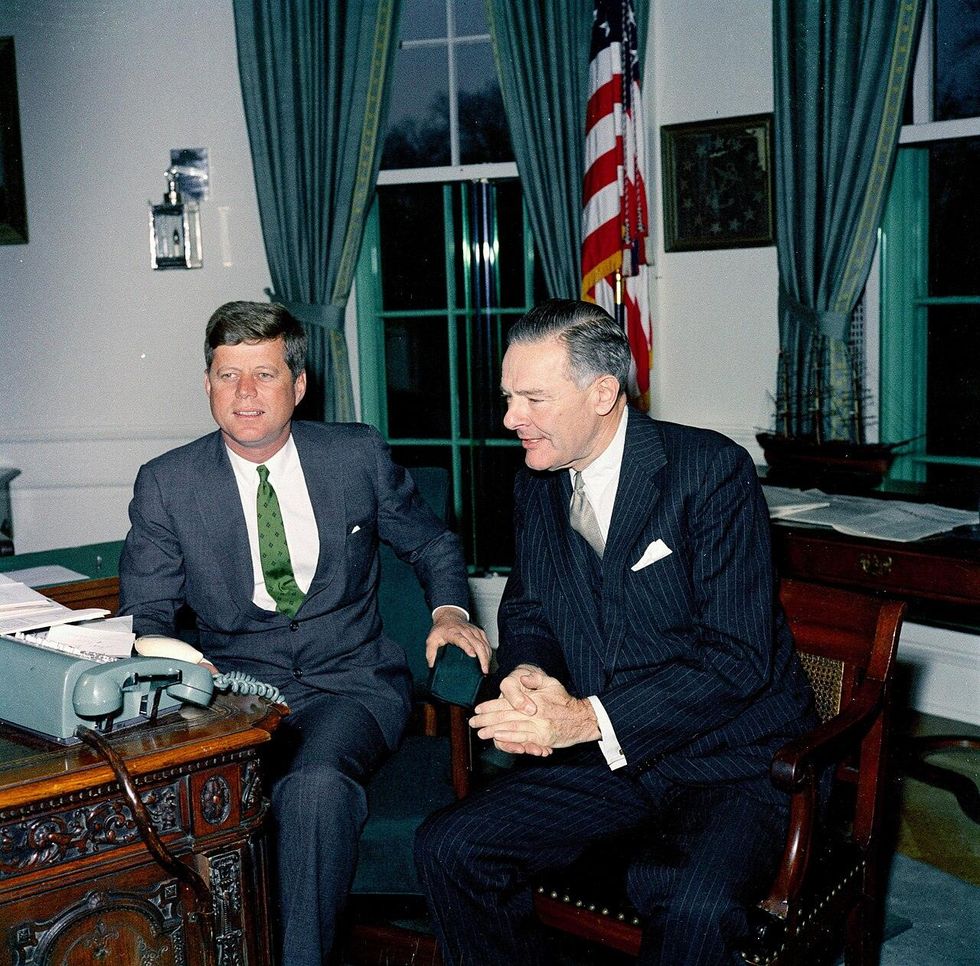If in the coming months Tunisia undergoes a transition, given current conditions, it will probably not be along a path back to democracy. Indeed, while President Kais Saied himself may be unsure where he wants to take the country, the most likely scenario is that Tunisia will stumble into semi-authoritarianism, or what this author has called “liberalized autocracy.” This kind of hybrid system has the virtue of tolerating some measure of political openness, but only under the umbrella of institutions, laws, and rules that give a regime the means to deter (or if need be, crush) threats to its ultimate control.
The incentive for some opposition leaders to tolerate (or accept) this kind of system is that the alternative—which we can simply call full autocracy—would cast Tunisia back into an era of repression that few leaders, including Saied himself, want to restore. For some groups, some version of liberalized autocracy might even be a reasonable alternative, especially if it excludes their political rivals from participating in elections. Thus, despite their misgivings, many Tunisian leaders have yet to fully repudiate Saied’s coup. While they want to reform a feckless power sharing democracy, many would not shed a tear if the resulting system excluded Islamist parties and the Ennahda Movement in particular. Kais Saied knows this: this ambivalence is his ace in the hole.
For this reason, if Tunisia is to avoid moving toward liberalized autocracy, what it urgently needs is a unified opposition that includes Islamists, liberals, and leftists. The November 14th massive protests in front of the parliament building—which were led by a new organization calling itself “Citizens Against the Coup”—might suggest the first stirrings of such a unified front. But the president can still count on the support of many leaders, a good portion of the wider populace, and the keen or tacit backing of high-level military officers. Indeed, Saied could prevail, especially if he continues to display his ample capacity to manipulate nationalist sensitivities by associating his opponents with “outside forces.”
The president can still count on the support of many leaders, a good portion of the wider populace, and the keen or tacit backing of high-level military officers.
Saied’s success would be Tunisia’s loss. The country needs constitutional democracy because the political and economic alternatives are worse, and the country could implode without the guarantees of pluralist democracy. Democracy and stability could go hand in hand, but their productive coexistence requires a sustained bid by Tunisia’s leaders to agree on a revitalized democratic roadmap. Despite the risk of playing into Saied’s populist rhetoric, the European Union and the United States have an urgent and concrete interest in pushing for a genuine political settlement.
Liberalized autocracy: Four basic ingredients
For it to succeed, liberalized autocracy must adhere to four basic principles.
Divide and Rule. This is a tried and true strategy of many autocrats. But it is crucial in liberalized autocracies because rulers in these systems need a reasonably open—if controlled—political arena if they are to master the art of backing one group against the other. A kind of hobbled pluralism is thus essential to regime survival; Saied’s repeated assertions that he will not be a “despot” suggest that he grasps this, however imperfectly.
Avoid and Temper Major Market Reforms. To sustain a strategy of divide and rule, it is essential that the ruler avoid imposing economic and social policies that might unite rival groups against the regime. During the last 10 years, the failure of successive power-sharing governments in Tunisia to forge any kind of economic reform program fostered widespread disillusionment with democracy. But this unhappy record does not mean that Saied will win the hearts and minds of the country’s estranged youth by tackling the very decisions that his predecessors avoided. On the contrary, his best strategy is to secure a massive infusion of outside economic aid, the likes of which might relieve pressure on him to impose difficult economic decisions. Liberalized autocracy must be subsidized one way or another.
A Strengthened Security-Judicial Apparatus. While they need a measure of openness, liberalized autocracies must also have the capacity to use the security apparatus and the courts to selectively deter, and if need be punish. Enforced by the arbitrary rule of the executive, the red lines that establish the limits of acceptable dissent are vague and constantly changing, thus enhancing the ultimate power of the president.
A Confident and Capable President. Managing this system requires a leader who is not only confident and resolute but who is also capable, rational, and intelligent. A leader surrounded by sycophants who reinforce bad judgments—or who cannot compensate for the leader’s shortcomings—will not sustain the intricate balance between tolerated openness and regime-enforced control of the institutional and legal terrain that is essential to liberalized autocracy.
Saied’s inchoate leadership
Saied exudes supreme confidence. But whether he has the mix of political acumen and wider rational vision to manage the institutional and strategic challenges he faces is another matter. His instincts, steely self-control, and ample intellect have helped him to grapple with many of the ingredients that are key to advancing liberalized autocracy. He appears to be securing the loyalty of top officials in the military, internal security forces, and key actors in the judiciary. He also is adept at the divide-and-rule game. His barely veiled verbal assaults on the Islamist oriented Ennahda Movement seem calculated to deter leaders who might otherwise join the opposition from turning against him. His promise to organize a national dialogue that will exclude “those who stole the people’s money and traitors” while being led by “young people” follows the time-honored practice in the Arab world of staging dialogues designed to divide oppositions while empowering the ultimate arbiters of such orchestrated events. And the arrest and ongoing prosecutions of at least six journalists and political leaders from the Islamist and leftist camps signals a strategy of selective if arbitrary repression that sustains formal legal and constitutional protections while using military courts to enforce the limits of acceptable opposition.
Saied exudes supreme confidence. But whether he has the mix of political acumen and wider rational vision to manage the institutional and strategic challenges he faces is another matter.
Still, Saied’s actions and words do not signal a coherent and effective ruling strategy. He has not renounced his long-held utopian vision of creating local popular committees in place of political parties or even parliament. On the contrary, his populism is animated by an allergy to formal governing institutions that clash with the deeper political and economic rationality required to advance a semi-authoritarianism system. While we know little about the team advising the president, the recent defection of one of his confidants suggests how hard it probably is to influence a leader who is infatuated with his own judgment.
Saied’s obstinacy has literally exacted its highest cost in the economic realm. The president faces a dire economic crisis rooted partly in an economy dominated by an array of powerful groups including businessmen and organized labor, both of which have lobbied to stymie any sustained economic reform program, but also to influence a negotiating strategy with the International Monetary Fund that protects their respective interests. Yet Saied’s statements and demands indicate a basic lack of economic literacy that has prompted ridicule from elites and growing impatience from the wider populace. Loath to alienate his base, he has dispatched the prime minister and other officials to meet with Saudi and Emirati leaders.
The mission of Saied’s emissaries is to secure the kind of massive aid that presumably might cushion the social pain that will come from politically risky measures such as reducing the wage bill of the huge public sector. But there is thus far little indication that Riyadh or Abu Dhabi will meet such requests. On the contrary, this writer has been told by DC-based policy analysts who have reached out to administration officials that the White House has been encouraging Gulf states to avoid enabling Saied. Thus, with one crucial ingredient for forging liberalized autocracy missing, Tunisia’s economic crisis will probably get worse.
The opposition struggles for unity
The November 14th demonstration—which brought out at least 6,000 protestors in front of a parliament sealed off by military vehicles—could suggest some progress on the road to forging a wider opposition front. The protests were partly organized by “Citizens Against the Coup,” a new organization. Jawhar ben Mbarek, a charismatic intellectual and critic of the president, insisted that the government had prevented “thousands” of protestors from reaching the demonstration, an assertion backed up by other reports. More ominously, he recently asserted that he was visiting a local cafe when two plainclothes men warned him that “we know where you live and where your children go to school.” Such intimidation suggests that the government wants to counter someone who might have the charisma and vision to unite secular and Islamists.
The opposition continues to be hampered by ideological, social, and economic fissures that are complicating the efforts to forge common ground.
Yet this will certainly be a daunting task, as the opposition continues to be hampered by ideological, social, and economic fissures that are complicating the efforts of Mbarek and other critics of the government to forge common ground. One telling example is that while the November 14th protesters were presenting a long list of demands, the most important of which is the restoration of parliament, the head of the General Tunisian Labor Federation (UGTT) told reporters that he informed President Saied that the trade union is ready to accept elections without bringing back parliament. No friend of Islamists, the UGTT has the capacity to mobilize tens of thousands of government white- and blue-collar workers. Its position suggests a significant divide that could play into Saied’s hands. The recent resignation by a group of veteran Ennahda leaders from the movement and their intention to form their own party might create a suitable partner for some secularly oriented groups and leaders. But it could also have the opposite effect by encouraging anti-Islamist leaders to conclude that the Islamist camp is so divided that there is no reason to make concessions to it, much less include the bloc in an opposition front.
Saied’s balancing act
Saied might also take advantage of frictions within Islamist groups to coopt Ennahda defectors. Having their tacit support could enhance his bargaining leverage as he tries to balance the need to sustain a measure of openness and the equally compelling quest to punish his critics. A heavy-handed approach could backfire by giving opposition groups an incentive to focus their wrath on the president. The boomerang is amply displayed by the escalating criticisms aimed by Tunisian groups at the president. It was displayed with even greater effect after the government, on what was surely Saied’s direct orders, issued an international warrant for the arrest of former President Moncef al-Marzouki. Accused of undermining Tunisia’s security after he held a press conference in Paris during which he called upon Tunisians to resist the “coup d’état,” the arrest warrant was denounced by several Tunisian human rights groups and leaders.
Saied appears to lack the temperament, imagination, and skill required for a complex balancing act to avoid slipping into the abyss of a fully autocratic system.
The irony of the situation was surely not lost on many Tunisians, including perhaps some of Saied’s advisors. Having spent much of his life in exile opposing the repressive regime of former President Zine El-Abidine ben Ali, Marzouki is once again defying autocracy from the safety of what is effectively a new exile. Saied’s campaign has backfired in ways that suggest that there are also red lines beyond which the president must not go lest he risk expanding the circle of opposition. But he appears to lack the temperament, imagination, and skill required for a complex balancing act to avoid slipping into the abyss of a fully autocratic system. To avoid this slippery slope, he must make concessions without which there can be no meaningful or effective national dialogue on a path forward.
Domestic conflict and the international equation
As opposition gathers steam and Saied’s critics try to overcome their still ample mistrust, the international community faces the challenge of finding a way to leverage domestic criticism of the president without undermining the credibility of his opponents. This hard if familiar dilemma will not be easy to manage given the alacrity with which Saied’s most ardent supporters have launched cyber campaigns that are clearly designed to intimidate his critics and perhaps even expose them and their families to physical danger. But day by day the president’s power grab is costing Tunisia on the economic and social fronts. The recent death of a protestor in Sfax following public demonstrations against an apparently dangerous landfill—which set the stage for new protests and a widening campaign to denounce the security sector—shows that a restoration of constitutional democracy is a necessary if insufficient condition for preventing a social implosion. Thus, the criticism of the European Union and the Biden Administration of human rights abuses, along with calls for restoring the parliament and establishing a credible rather than fake national dialogue, must continue.
This is especially important for a US administration that is about to hold an international conference on democracy, but which is aligned with almost every autocracy in the Arab world. Following the lead of previous administrations, the Biden White House sees a tension between its normative and security commitments in the Arab world, and it is clearly favoring the latter. Preventing a transition to autocracy in Tunisian will exacerbate this state of affairs. But it could help convince Tunisians to rework and rekindle the flawed experiment in democracy that they began a decade ago rather than let it perish.
This article has been republished with permission from Arab Center DC.





 President John F. Kennedy and Henry Cabot Lodge Jr. in 1961. (Robert Knudsen/White House Photo)
President John F. Kennedy and Henry Cabot Lodge Jr. in 1961. (Robert Knudsen/White House Photo)










